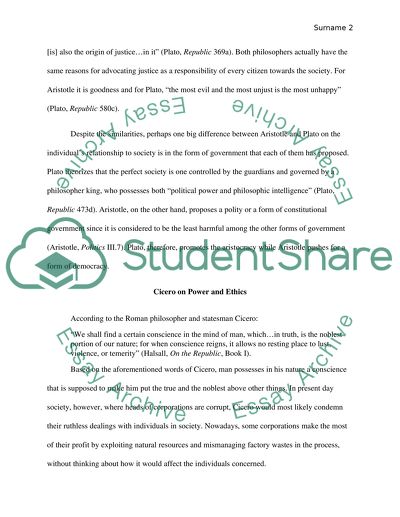Retrieved from https://studentshare.org/philosophy/1588637-compare-and-contrast-plato-and-aristotles-separate-views-on-the-individuals-relationship-to-society-cicero-poses-questions-about-power-and-ethics
https://studentshare.org/philosophy/1588637-compare-and-contrast-plato-and-aristotles-separate-views-on-the-individuals-relationship-to-society-cicero-poses-questions-about-power-and-ethics.


